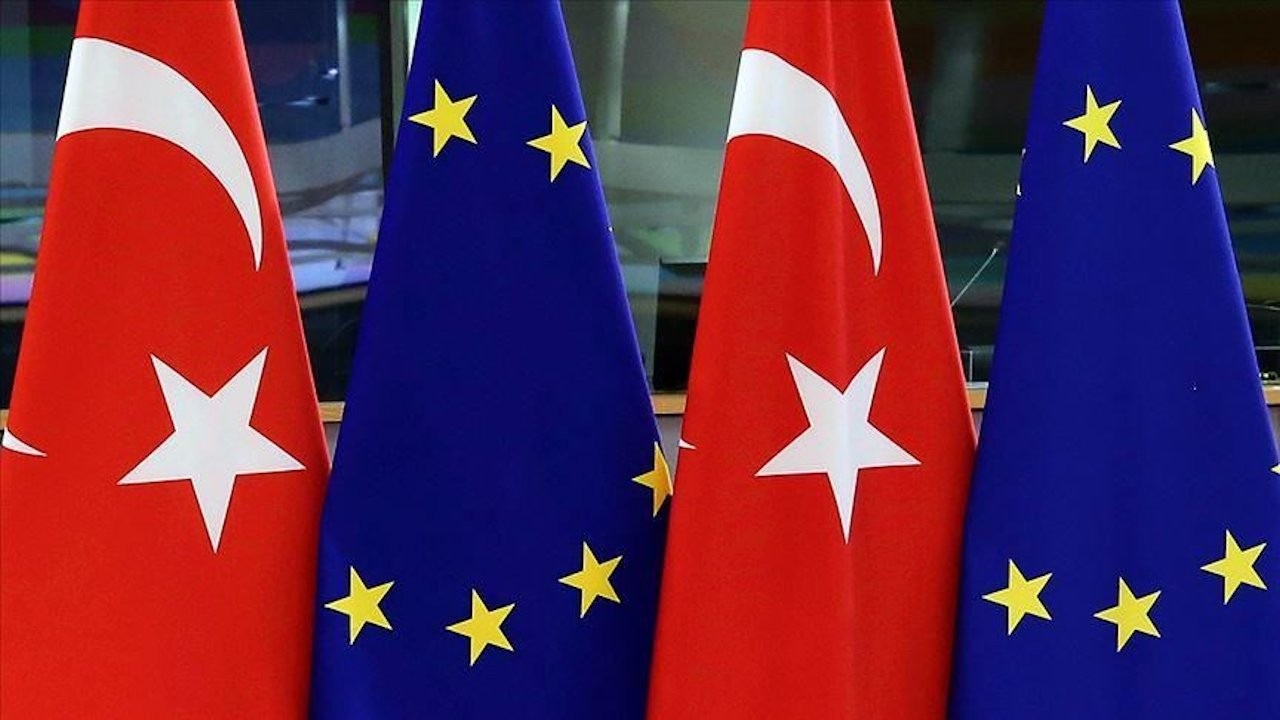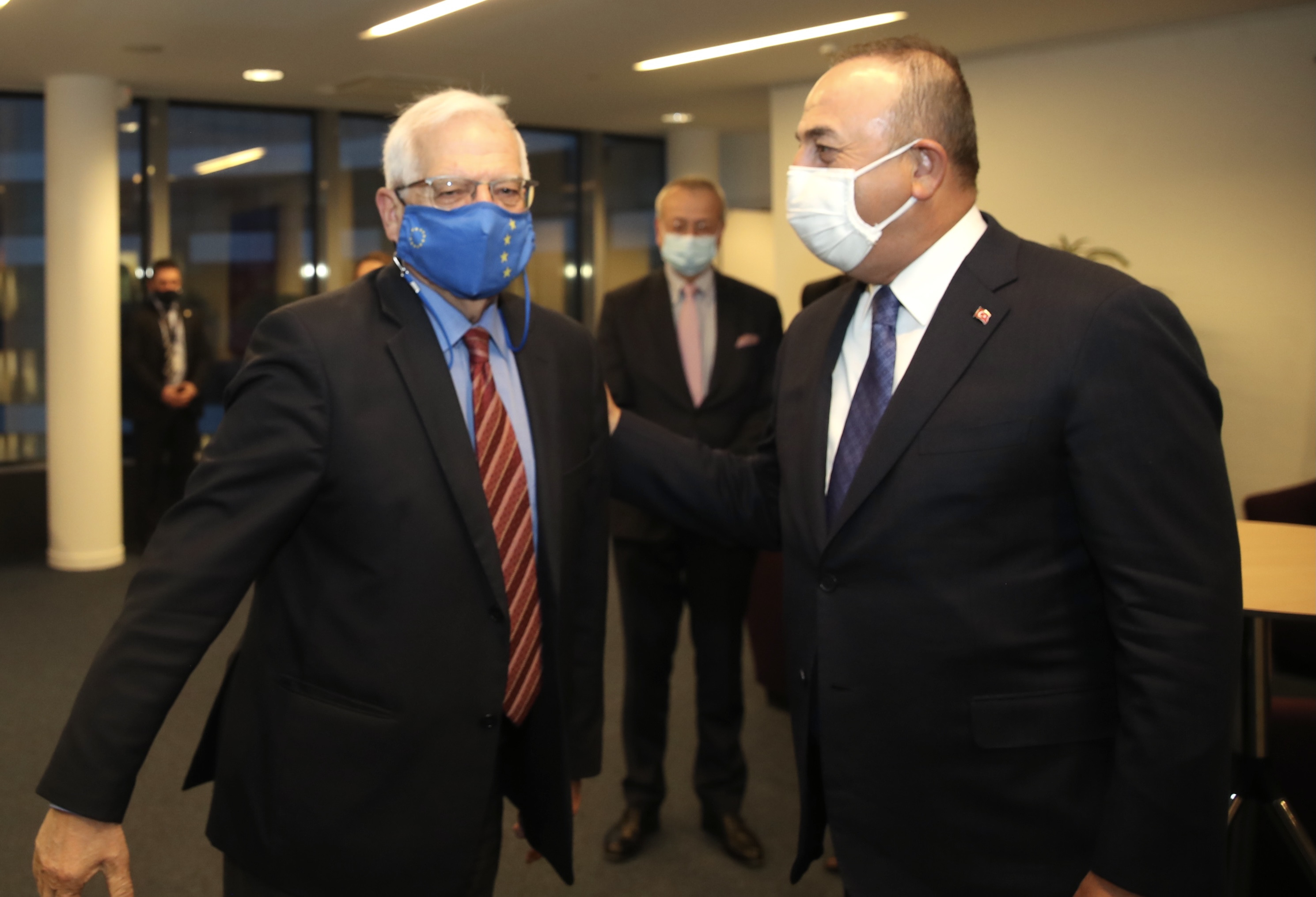Turkey tells EU to stop 'playing for time,' take concrete steps to improve ties
Turkish Foreign Minister Mevlüt Çavuşoğlu on March 24 urged the EU to take concrete steps to improve the positive momentum in ties. "Positive steps were taken from Turkey and the EU. Instead of playing for time and making conditional remarks, the EU now needs to take concrete steps in certain areas," Çavuşoğlu told reporters in Brussels.
Reuters - Duvar English
Turkish Foreign Minister Mevlüt Çavuşoğlu said the European Union needs to stop "playing for time" and should take concrete steps to improve positive momentum in ties, a day before an EU summit where the bloc's leaders will discuss relations with Ankara.
"Positive steps were taken from Turkey and the EU. Instead of playing for time and making conditional remarks, the EU now needs to take concrete steps in certain areas," Çavuşoğlu told reporters in Brussels after a NATO meeting on March 24.
"The issues of visa liberalisation and the modernisation of the customs union need to be realised," he said. "The EU has to keep its promises," he added, referring to pledges under a 2016 migrant deal under which Turkey curbed migrant flows to Europe in exchange for financial aid.
The EU threatened sanctions on Ankara over a row between Turkey and EU member Greece last year over maritime jurisdiction in the Eastern Mediterranean, but halted the plans after a more constructive tone from President Recep Tayyip Erdoğan.
According to a draft statement EU leaders are set to agree at the summit, the EU is ready to deepen trade ties with Turkey but will maintain the threat of economic sanctions if Ankara moves against its interests.
The summit will build on a report by EU foreign affairs chief Josep Borrell and the European Commission that calls for "modernisation and expansion of the scope" of the customs union. Çavuşoğlu and Borrell held talks in Brussels on Tuesday over Turkey-EU ties.
At March 25-26's summit, EU leaders will say Turkey deserves more financial support for hosting millions of Syrian refugees and more high-level diplomatic talks.
The EU is also expected to provide new funds from 2022 for the more than four million refugees in Turkey, if Ankara respects human rights and showed greater flexibility over the divided island of Cyprus and the Eastern Mediterranean.
Çavuşoğlu said Turkey, a guarantor country for the breakaway Turkish Cypriots, had a constructive approach ahead of next month's U.N.-led talks over the island, but added "we are very determined to protect Turkish Cypriots' rights."
Turkey has a long-standing bid to join the EU but it has languished for years due to opposition from within the bloc.
Greece, Cyprus want 'credible implementation' of EU dual-track approach to Turkey
Meanwhile, Greek Prime Minister Kyriakos Mitsotakis said on March 24 that the EU must ensure "credible implementation" of a dual-track approach to relations with Turkey, mixing the prospect of deeper trade ties with a threat of economic sanctions.
"We agreed with the (Greek Cypriot) President that at tomorrow's European Council our two countries, as well as the union as a whole, must insist on the credible implementation of the dual-track approach," Mitsotakis said after meeting Greek Cypriot President Nikos Anastasiades on the sidelines of bicentennial celebrations of Greece's independence from the Ottoman empire in 1821.
Anastasiades said any decision or announcement at the summit "should be fully consistent with the report of the European Commission and Borrell."

 Deepen trade with Turkey but ready sanctions: EU reportDiplomacy
Deepen trade with Turkey but ready sanctions: EU reportDiplomacy Crackdown on HDP, withdrawal from Istanbul Convention taking Turkey out of European path, EU's Borrell warnsDiplomacy
Crackdown on HDP, withdrawal from Istanbul Convention taking Turkey out of European path, EU's Borrell warnsDiplomacy